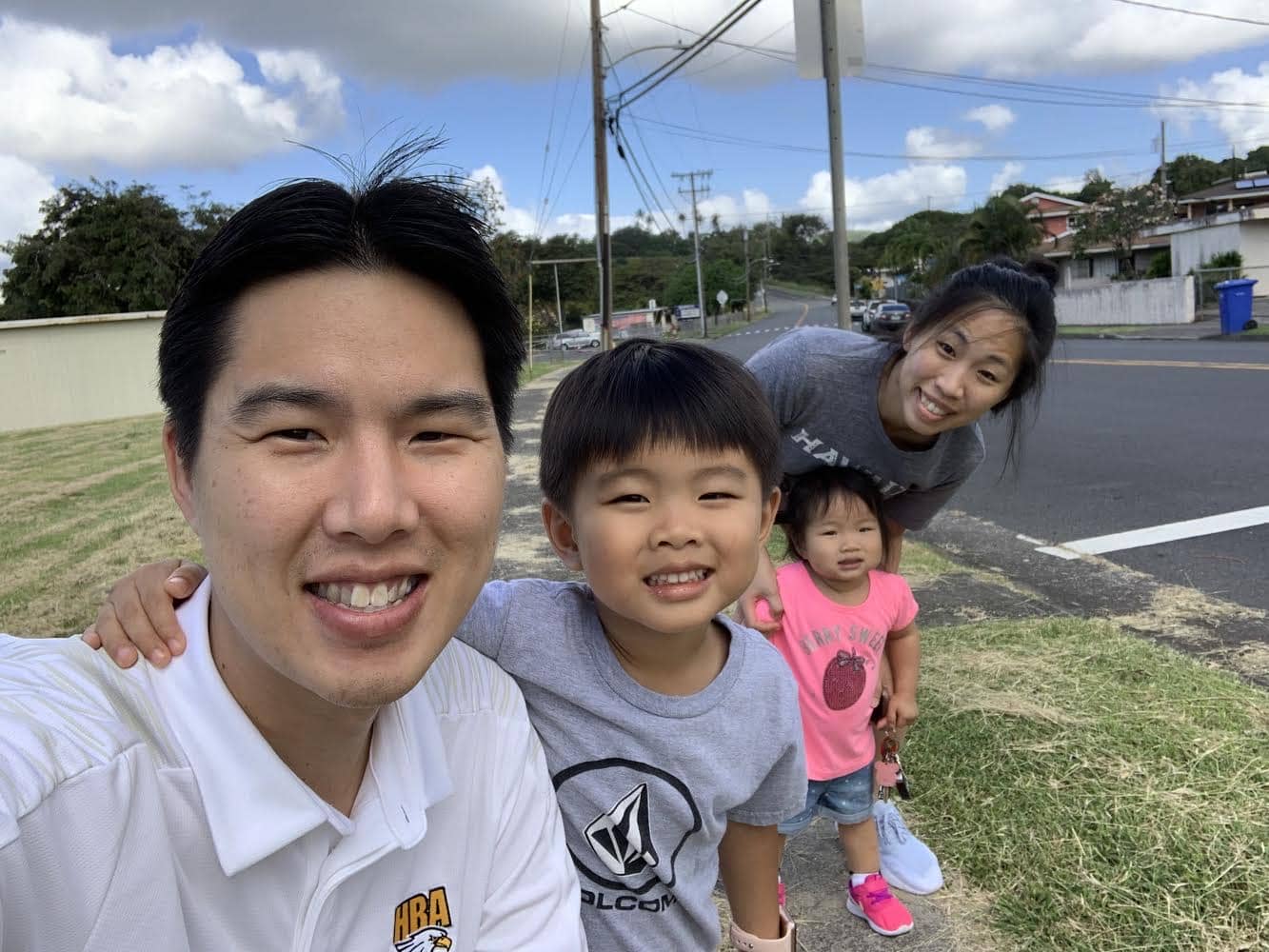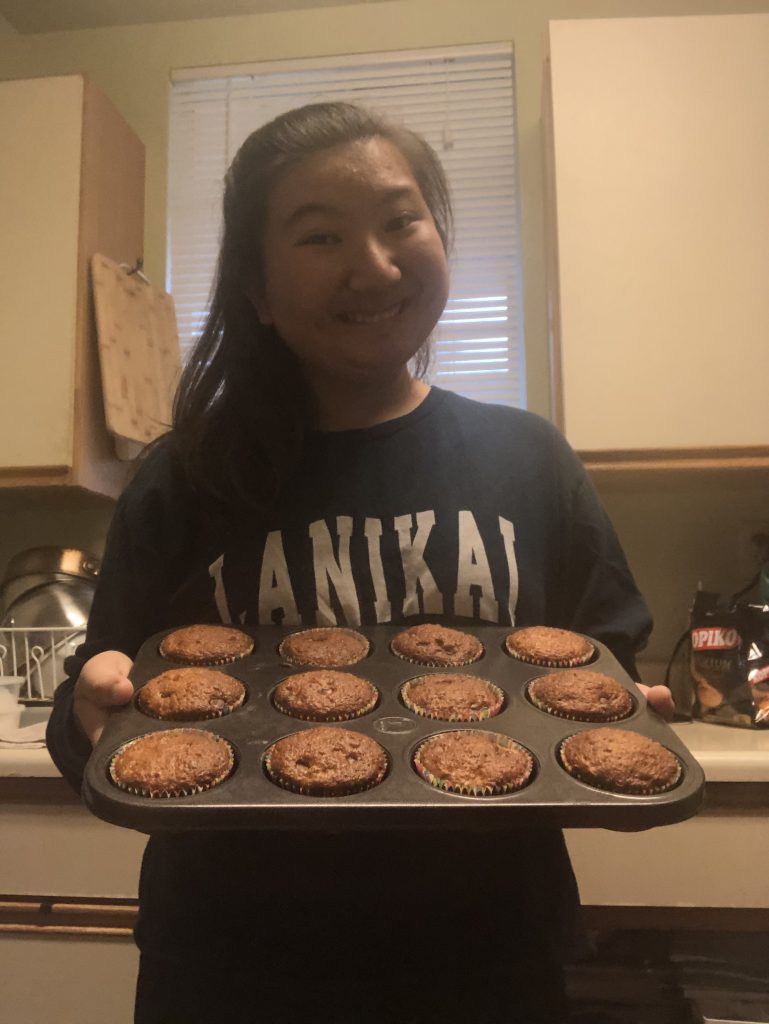Making the Most Out of This Crisis


At HBA, according to high school counselor Danford Chang, many students report to be doing well. “The students I spoke to are as upbeat as can be expected, I think. They are making the best of it and appreciate spending more time with family and slowing down a bit,” Chang said. He’s noticed that students also seem more responsive. “I get quicker responses and students are reaching out digitally much in the way that they would come strolling into my office at school.” Chang says that he’s surprised that not more students aren’t interacting through FaceTime or Zoom. Instead, most students socialize through social media platforms.
While technology and internet connectivity have become even more indispensable during this crisis, some have found themselves searching for ways to relax without technology. Teenagers and adults alike are finding creative ways to stay occupied by painting, cooking, producing music, doing puzzles, and playing board games with their families. Sophomore Bailey Nagai finds herself channeling her creativity in different ways. “I have taken up learning how to bake and also doing daily exercise. This has helped me occupy my time and has taught me new things. Although this is a difficult time in our society, I am trying to make the best of the situation and trying to gain and learn how to have quality time with myself and my family,” she said.

Sophomore Connor Malinger, whose track season was abruptly cut short, has been taking advantage of the extra time at home by running more often. “More people are becoming aware of how they should be more active and I see a lot more people walking or jogging around my neighborhood,” he said.
While the stay-at-home and work-from-home order is challenging for many families, English teacher Jenn Duncklee looks to the positive side of things. “Even though staying home is rough, I am grateful for all of the family time we’ve had these past few weeks. I’m especially treasuring time with my daughter before she goes to college next year,” she said. Just like Duncklee, senior Kela Kaida is being more intentional in spending time with her family. “I’ve definitely grown closer to my dad and grandpa during the outbreak due to the amount of time we now spend together. I am able to better attend to my grandpa’s needs and help around the house more,” she said.
In addition to having a greater appreciation for family and friends, many people now have a deeper appreciation for the unsung heroes in their society. “This pandemic has also shown us that people we may have taken for granted before are just as important: janitors, grocery store workers, delivery men and women, garbage collectors, mail carriers, and the list goes on,” said Duncklee. She’s noticed that the pandemic has helped people discover that they need each other and that every member of the community plays an important role. Junior Caden Weaver shared a similar insight. “COVID-19 has given my community a sense of togetherness. Being quarantined has made all of us feel like we are making a difference and helping to stop the virus from spreading… [it] also gives everyone a sense of togetherness because we all are doing our part,” he said.
Being in quarantine and practicing social distancing can be a struggle for people who enjoy the outdoors, but it is having a positive impact on some parts of the environment. Science teacher Claire Mitchell, who has been busy organizing a virtual Earth Week celebration with her high school Environmental Club members, is quick to list two highlights: Animals in national parks such as Yellowstone have been more active lately and according to the New York Times, a pair of captive pandas have bred for the first time in 10 years, most likely due to having no zoo visitors. “I hope that this is an opportunity for restoration and recovery, at least on some level, for our environment,” she said.
Mitchell has good reason to hope: Researchers at Columbia University report that New York City has seen dramatic reductions in carbon dioxide, carbon monoxide and methane, which is resulting in much improved air quality; USA Today reports that satellite images show nitrogen dioxide (NO2) emissions are fading away in Italy, Spain, and the UK; and the New York Times reported “huge declines in pollution over major metropolitan areas, including Los Angeles, Seattle, New York, Chicago and Atlanta.”
In the midst of these challenging times, Kaida believes that attitude goes a long way in making life less difficult. “There’s still a lot of bad stuff linked with the coronavirus but remaining positive is key in this time. Nothing good happens from continuously thinking about the negative aspects of [the virus] but we can make a positive difference in our lives and others by being the best self we can be,” she said. Mitchell also offered some advice for those feeling discouraged. “We will remember all of the good that came out of this time and situation and [should] continue looking for ways to support each other and build up our communities. It’s in these hard times that we often see the very best of humanity and are reminded of what’s truly important,” she said.
